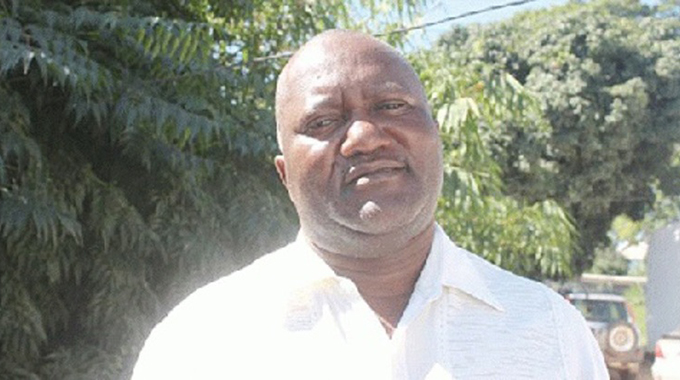Rural women reflect on challenges, successes

Roselyne Sachiti Features, Health & Society Editor
Sithabisiwe Nkala (52) of Nhlekiyana Village in Umzingwane District, Matabeleland South Province, is a determined rural woman.
Each day, she works hard to contribute to the food security of her family and community.
Nkala is also a village health worker and has seen the health and social challenges women in her area face.
The day is Tuesday October 13 and Nkala is one of the women, men and community leaders attending a training on sexual gender based violence (SGBV) being conducted by Apostolic Women Empowerment Trust (AWET).
At the same meeting, Vuka Afrika Performing Arts Trust is also raising awareness on SGBV and educating the community using theatre.
“Issues like early child marriages and sexual gender based violence rampant in my area worry me,” Nkala tells The Herald. “There are many illegal gold panners in this area and they worsen the situation.”
Nkala adds the social challenges worsened during the past months as Covid-19 changed the way people live.
“Some rural women and girls were around their abusers all the time because of the national lockdown,” she says.
“I am working hard to see an end to such bad practices.”
Nkala reveals is one of the thousands of rural women in Zimbabwe who today join the world to commemorate the International Day of Rural Women marked on October 15 each year.
Created in 1995 by civil society organisations at the Fourth World Conference on Women in Beijing and was declared an official United Nations Day in 2007 by the UN General Assembly, the day takes stock of successes and challenges that affect rural women.
This year’s global theme is “Building rural women’s resilience in the wake of COVID-19.”
Covid-19 has brought a new dimension to gender relations and Nkala is clear about what she wants on this day.
“This is a day for rural women to speak out and have their voices heard,” says Nkala who is also a community behaviour change facilitator (BCF) with AWET.
“I say no to child marriages that went up during the lockdown. I say no to men who beat up their wives during the lockdown.”
In her role as a BCF, Nkala has been trained by AWET, under the Spotlight Initiative project.
AWET, with technical assistance from Unicef Zimbabwe under the Spotlight Initiative, is training BCFs like Nkala to support the prevention of SGBV.
So far, AWET has trained 1 650 BCFs in 12 districts across Zimbabwe.
The Spotlight Initiative is a global partnership to eliminate all forms of violence against women and girls.
It is funded by the European Union (EU,) and being implemented by UNDP, Unicef, UN Women, UNFPA, UNESCO, and the ILO in Zimbabwe.
Co-chaired by the UN Resident Coordinator’s office and the Ministry of Women Affairs, Community, Small and Medium Enterprises Development, the Spotlight Initiative also has a national civil society reference group to promote stakeholder accountability and civil society engagements.
The programme is an integrated package of interventions across six pillars.
These are legislative and policy frameworks; institutional strengthening; prevention and social norms; delivery of quality essential services; data availability and capacities and supporting the women’s movement.
The Zimbabwe Spotlight Initiative country programme targets 11 million beneficiaries directly and indirectly, particularly rural women and girls, women and girls living with disabilities, and women living with HIV.
At least 60 percent of the Spotlight Initiative country programme intervention is being implemented at community level in 23 districts in the five provinces of Mashonaland Central, Mashonaland West, Manicaland, Matabeleland South and Harare.
Nkala reveals that as rural women, they face water challenges and cannot farm as much as they would want.
“For now we just buy vegetables, fruits and other wares from Bulawayo and resell at our local market,” she says.
“We have to earn a living and things were tough as a result of Covid-19, which altered our incomes. Some women are making reusable face masks for resale. We are starting to recover, but at a slow pace.”
Indeed, rural women are the backbone and drivers of many families.
The role they play in unpaid work that includes household food security, health, and economic activities that helps sustain communities and social cohesion cannot be overlooked.
With little capital, rural women have formed cooperatives in chicken rearing, gardening and sewing that have transformed their lives.
This proves that when women have access to income and resources, they often use them wisely on basic needs like food, clothing, education, health among others to improve the living conditions of their families.
In most communities, the ripple effects are there for all to see.

Vuka Africa Performing Arts Trust is using theatre to educate rural and urban communities on sexual gender based violence
Long-term human capital formation, economic growth through health, nutrition and education are often end results.
In its message on the International Day of Rural Women, UN Women said the spotlight is on the urgent need for building rural women’s resilience in the wake of Covid-19, for “building back better” by strengthening rural women’s sustainable livelihoods and well-being.
“Rural women play a crucial role in agriculture, food security and nutrition, land and natural resource management, and rural enterprises,” said UN Women.
“They have been at the front lines of responding to the pandemic even as their unpaid care and domestic work increased under lockdowns, mobility is restricted, supply chains are disrupted, and climate and conflict crises compound Covid-19 impacts.”
According to UN Women, in India, millions of rural women organised in self-help groups have helped to fill acute shortages and gaps by producing masks and hand sanitisers, providing fresh food through community kitchens, offering financial services, and communicating vital Covid-19 information in rural communities.
In China, UN Women adds, rural women’s cooperatives re-oriented their activities to supply much-needed masks to their communities and beyond.
In Mali, rural women-owned enterprises and cooperatives are preparing survival kits for vulnerable persons and in Senegal, women rice producers are supplying government sourcing for food transfers.
“Yet, rural women are labouring under acutely disadvantageous conditions,” said UN Women.
“Already, insufficient infrastructure and services in rural areas have been stretched to the limit; rural women’s invaluable care and productive work during the pandemic has burgeoned, in many places without clean and safe water, sanitation and hygiene, energy supply or healthcare services.”
UN Women said the pandemic heightened the vulnerability of rural women’s rights to land and resources.
“Discriminatory gender norms and practices impede women’s exercise of land and property rights in most countries,” said the agency.
“Since women’s land rights are often dependent on their husbands, Covid-19 widows risk disinheritance.
“ Women’s land tenure security is also threatened as unemployed migrants return to rural communities, increasing pressure on land and resources and exacerbating gender gaps in agriculture and food security.”
Explaining further, UN Women said gender-responsive investments to expand basic infrastructure, healthcare and care services in rural areas have never been more critical.
“Bolstering women’s land rights in law and practice can help protect women from displacement and losing their sources of livelihood,” said UN Women.
“This International Day of Rural Women is a key moment to galvanise action by all stakeholders to support rural women and girls to not only rebuild their lives after Covid-19, but increase their resilience to be better prepared to face future crises.”
[email protected] / [email protected] / Twitter- @RoselyneSachiti.










Comments